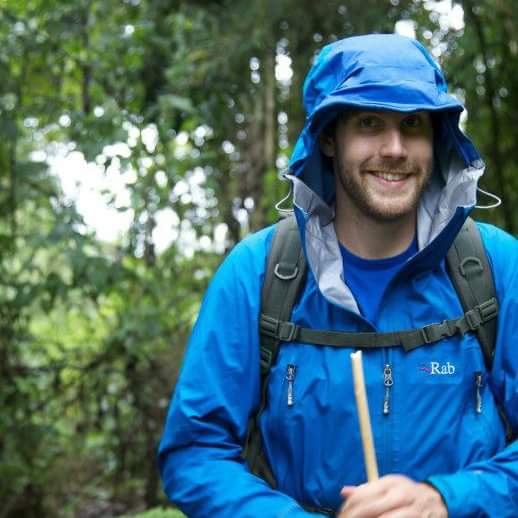Daniel Smith, Sidney Sussex, 2014-2015
Following five years as a chef in London Dan returned to education and graduated with a BEng in Civil and Environmental Engineering from Cardiff University. During his degree he volunteered with Engineers Without Borders UK, becoming the Operations Coordinator in his final year. He spent his first three summers in Uganda as a site engineer on small construction projects and part of his industrial placement in India researching traditional methods of rainwater management to underpin his thesis. Following graduation Dan joined ELRHA (Enhancing Learning and Research for Humanitarian Assitance) on a short contract supporting the development of professional accreditations for humanitarian works. After this he moved to Shelter Centre in Geneva to support research in to the provision of shelter after disaster. He then returned to Uganda with Water for People helping to develop micro-enterprises providing sanitation services to non-sewered properties in Kampala. He then moved to Ghana to support the growth of the household toilet-rental start-up Clean Team Ghana by developing a new processing site and logistics system for the company. Before joining the course he spent 3 months with IMC Worldwide to gain a better understanding of large project development by International Finance Institutions.
Dissertation title:
An investigation of Social Risk during the construction of large infrastructure in developing economies
Using his own professional network, Dan gained support from the social performance consultancy Monkey Forest Consulting to complete his thesis. He joined them on a large project in Vietnam for a month where they were managing the impacts to local communities of a $9 billion oil refinery development. Using their project data and interviews with their staff he applied Engineering System theory to understand if these tools could be used to objectively connect social risk with project operations in terms that could be used for engineering project management.
Students report:
Why did you do the ESD MPhil?
Having spent 2 years working on small yet complex engineering projects in Uganda and Ghana I decided that I needed a stronger foundation of engineering and project management otherwise I was going to continue going round in circles making the same mistakes; as I saw a lot of well-meaning people in “development” doing. Many of my peers from EWB-UK that I have a great deal of respect for have completed the MPhil and I had learnt a lot from these people. In order to gain the experience to be able provide better solutions I knew I needed to work in a more formal environment (such as an engineering consultancy) and to do this in a way that ensured I still worked on interesting projects I knew I needed a qualification that stood out. To consolidate what I had already learnt and translate it to apply to markets in Europe I decided take the MPhil. I haven’t been disappointed either because I’m now working for a leading engineering consultancy with a mix of work covering the UK, European countries, water engineering, and sustainable development.
How did it help you?
When I describe the course to people I say it’s a sort of MBA for sustainable engineering and I think this description captures all the ways that it has helped. For a start the course is taught from a professional perspective using real examples of engineering and business projects. This means that you can apply your own experience and that of your peers to real problems. I found that by doing this I learnt as much from my peer group as I did from the modules themselves. The outcome of this is that you gain a breadth of knowledge across engineering, project management, business management, and sustainability assessment that can be applied to real problems once you graduate. I’ve since found that the company I work for is applying many of the same theories to their business and project development but using slightly different language. As these ideas aren’t taught in most university courses I have been able to embrace them quickly which has given me a competitive advantage over my colleagues to get a place on interesting projects.
What are you doing now?
I now work in Edinburgh for Royal HaskoningDHV in their Water Europe Business Line. My primary focus is on managing flood risk, from rivers and the sea, in Scotland and the UK. Through this I am becoming part of the Scottish Government’s drive to develop Scotland as a Hydro Nation that profits on our water resources in a sustainable manner. I am also quickly branching out to be included in projects with the EBRD and DFID because of my overseas experience and qualifications in sustainable development. The lessons I learnt on the course have allowed me to quickly and positively engage with colleagues from other business lines, mainly in environmental fields. So I am also developing bids in Circular Economics with colleagues from Smart Urban Environment team in Holland; learning about environmental impact assessment from our Edinburgh based Renewables and Marine Development team who support the development of enormous renewable energy projects; and I’m part of our corporate drive to frame all of our projects between 4 questions relating to sustainable development.
Without taking this course I would not have been able to achieve my aims of transitioning from standard NGO type development work where I was making many mistakes to innovative international engineering work where I can deliver solutions as part of a professional team. I’ve been very lucky in who I’ve met and how they’ve helped me but without the basis of knowledge and education from this course I wouldn’t be able to capitalise on these opportunities.

